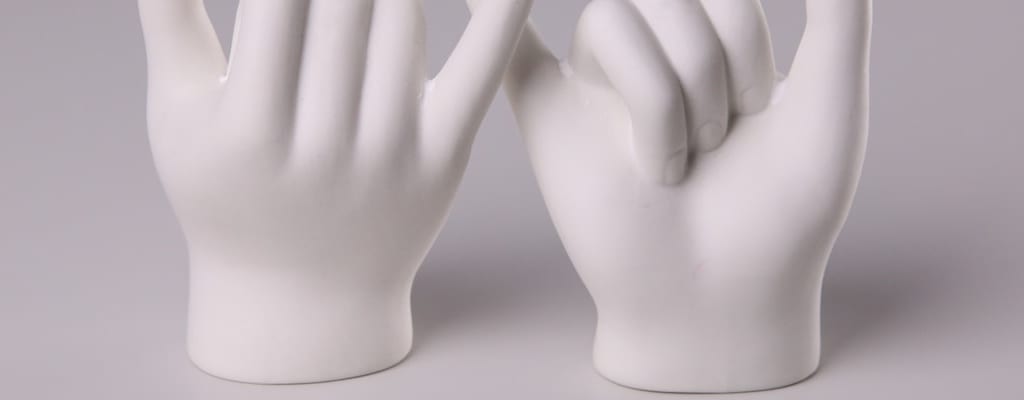cross my heart and hope to die: Idiom Meaning and Origin
What does ‘cross my heart and hope to die’ mean?
The idiom "cross my heart and hope to die" is a promise or affirmation that something is true. It is often used by children to emphasize sincerity, with "crossing my heart" symbolizing a pledge or oath, and "hope to die" expressing the seriousness of the commitment.

Idiom Explorer
The idiom "knock on wood" is used when someone wants to express a hope or wish that something continues to be good or successful in the future.
The idiom "keep one's fingers crossed" means to hope for good luck or success. It is often used when someone is wishing for a positive outcome or outcome of an event.
The idiom "I wish" is used to express a desire for something that is unlikely or impossible to happen in reality. It enables people to communicate their hopes or dreams, often highlighting a contrast between what is desired and what is actually true.
The idiom "I'm sure" is used to express a high degree of certainty or confidence in something. It indicates that the speaker has no doubt or hesitation about the truth or accuracy of a statement or belief.
The idiom "hope against hope" means to continue hoping for something despite there being little or no chance of it happening.
The idiom *hold one's breath* means to wait with anticipation or expectation, often for something uncertain or unlikely to happen. It implies not breathing due to anxiety or excitement. The phrase is figurative and not meant to be taken literally.
The idiom "hill to die on" refers to a strongly held belief or principle that a person is unwilling to compromise on, even if it means facing serious consequences or opposition.
The idiom "have one's heart in" means to be passionately or deeply committed or invested in something or someone.
The idiom "hand to God" is used to emphasize the truthfulness or sincerity of a statement, with the implication that one is being completely honest to the point of invoking divine witness.
Meaning: To become optimistic or expectant about something, often to later be disappointed when it doesn't happen as anticipated.
Origins Unveiled
The idiom "cross my heart and hope to die" is a commonly used expression in the English language. It emphasizes the sincerity and truthfulness of a statement, pledge, or promise. The origins of this idiom provide insight into its enduring usage in everyday conversations.
One fact about this idiom is its association with the act of crossing one's heart. This gesture involves placing one's hand over the left side of their chest in a cross-like manner while making the statement. It symbolizes the sincerity and seriousness of one's words.
Another aspect of this idiom is the inclusion of the phrase "hope to die." This adds an element of seriousness and solemnity, showing the speaker's willingness to face dire consequences if their words are proven false.
The origins of "cross my heart and hope to die" can be traced back to religious beliefs. The act of crossing one's heart has its roots in Christianity, where believers would make the sign of the cross over their heart to invoke divine protection or express faith. This association with divine involvement adds weight to the sincerity promised through the idiom.
The phrase "hope to die" can be seen as a reference to the consequences of breaking a promise. In many cultures, breaking an oath or pledge is considered a serious offense, often punishable by severe consequences, including death. This element of the idiom underscores the gravity of the statement and the speaker's commitment to the truthfulness of their words.
The idiom "cross my heart and hope to die" has become a well-known expression in contemporary English. It effectively conveys one's sincerity in making a promise or statement, rooted in religious and cultural beliefs. The act of crossing one's heart and the inclusion of the phrase "hope to die" contribute to the seriousness and weight of this idiom.
While the origins and meaning of the idiom have been explored, the question still remains: How has its usage evolved over time, and how will it continue to shape our language and communication? The idiom's presence in popular culture, literature, and everyday conversations suggests its lasting impact on the English language.
"Cross my heart" is another idiom related to "cross my heart and hope to die". It is often used to emphasize the sincerity of a statement or promise. By crossing one's heart while making a statement, the speaker is emphasizing their commitment to the truthfulness of their words. This gesture adds an additional layer of conviction and sincerity to the idiom.
"keep one's fingers crossed" is another related idiom. It is used to express hope or good luck, often in situations where the outcome is uncertain. By crossing one's fingers, the speaker is symbolically wishing for a favorable outcome. This idiom is similar to "cross my heart and hope to die" in that both involve physical gestures to convey sincerity or hope.
The enduring usage of these idioms highlights the power of language to convey deep conviction and commitment. As with many idioms, the complex layers of meaning and symbolism within "cross my heart and hope to die" make it a rich subject of study, allowing us to delve deeper into the nuances of human expression and communication.
Example usage
Examples of how the idiom "cross my heart and hope to die" can be used in a sentence:
I promise I will finish my homework tonight, cross my heart and hope to die!
We will keep this surprise party a secret, cross my heart and hope to die!
If you tell anyone about what I said, I will deny it, cross my heart and hope to die!
More "Promise" idioms



